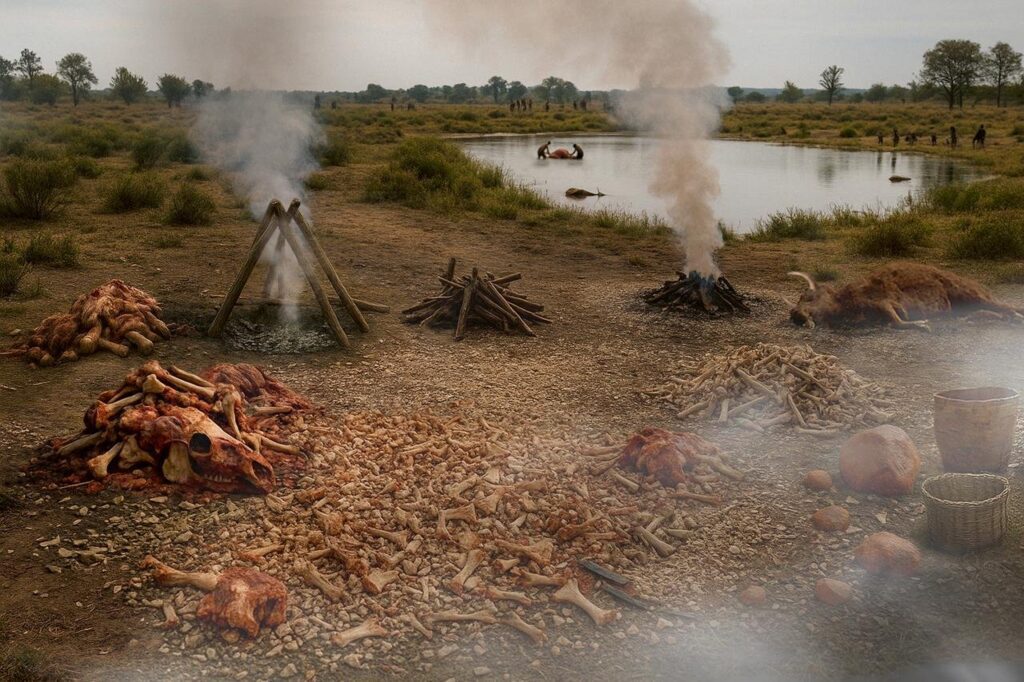Recent research reveals that Neanderthals in central Germany, around 125,000 years ago, employed advanced food preparation methods. Excavations at the Neumark-Nord 2 site indicate they systematically peeled fat from large animal bones using water and heat, demonstrating a sophisticated understanding of nutrition, resource management, and planning.
Led by Dr. Lutz Kindler, a team of international researchers discovered that Neanderthals not only destroyed bones to access marrow but also crushed and boiled them to extract nutrient-rich bone grease. This practice, previously attributed solely to modern humans, has significantly shifted perceptions of Neanderthal capabilities regarding diet and adaptation.
The site revealed evidence of the slaughter of at least 172 large mammals, including deer, horses, and aurochs. Notably, the complexity and organization of their activities suggest a keen awareness of resource management and strategic hunting. The Neumark-Nord complex, with its well-preserved interglacial ecosystem, provides insights into various Neanderthal behaviors in the same landscape.
This discovery challenges the stereotype of Neanderthals as primitive beings, highlighting their intelligence and ability to plan for future needs, manage their environment, and maximize nutrition in challenging conditions. The findings suggest they had profound long-term impacts on local ecosystems through organized hunting practices.
Source link


